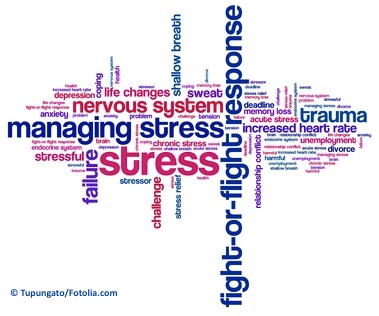Any musician who performs has been in the position of having to play a concert with too little sleep. We may be traveling and don’t sleep well in hotels. Or perhaps a  performing opportunity has popped up unexpectedly and the only way to have the music learned and memorized is to work well into the night. Students are known to cut sleep in order to try to accommodate all of the other demands of university life. Occasionally sleep-deprived performances are unexpectedly good. More than one pianist has told me that because she was so tired, the critical, judgmental voice in her head that often monitors performances was less active and she more easily entered a flow state. But more likely, we musicians don’t talk about the performances that didn’t go well when the reason was lack of sleep.
performing opportunity has popped up unexpectedly and the only way to have the music learned and memorized is to work well into the night. Students are known to cut sleep in order to try to accommodate all of the other demands of university life. Occasionally sleep-deprived performances are unexpectedly good. More than one pianist has told me that because she was so tired, the critical, judgmental voice in her head that often monitors performances was less active and she more easily entered a flow state. But more likely, we musicians don’t talk about the performances that didn’t go well when the reason was lack of sleep.
But think about it. Suppose we are facing major surgery. We make the assumption that the surgeon will be well-rested, able to remember every aspect of the procedure, and able to think critically and quickly about how to handle any complication. Yet we often expect our memory during performance – and our critical thinking ability to extricate ourselves from any possible memory glitch – to function perfectly, no matter how little sleep we have had. Is this even possible?
Researchers have known for some time that sleep is necessary for consolidation of memory – for the transfer of short-term to long-term memory. But does the amount of sleep matter and how accessible are those memories when we are under stress – like the stress of performing?
Recently, a group of researchers at Uppsala University in Sweden has shown that sleep not only helps form long-term memory but ensures that we have access to it during stress, and what could be more stressful than performing!
During my first year of college, I often existed on 3 or 4 hours of sleep a night – studying until 2 or 3 a.m. and getting up to practice at 6 a.m. I actually maintained that schedule for several months until I fainted one night coming out of a study room in my dorm at 3 a.m. – knocking my face into a corner where the walls of two hallways came together. That was a tough way to learn about the importance of sleep.
And even with that smack in the face, it never occurred to me at that time how much lack of sleep might also be compromising my performance as a pianist. And my major professor was no role model when it came to the importance of sleep. He was always in the music building until 2 or 3 in the morning and back again by 9 a.m.
The Swedish researchers* held an evening session in which participants learned card pair locations on a computer (declarative memory) and a finger tapping sequence (procedural memory). Procedural memory is the memory for how to play your instrument; declarative is the memory for a piece of music. See The many kinds of memory in music .
Then half of the participants slept for a full 8 hours; the other half slept 4 hours. The next morning they were tested on both memory tasks. All of the participants in both groups did equally well on both declarative and procedural memory tasks. Amount of sleep was not a factor.
So far, so good. But when they subjected the participants to stress, those who
had the short night of sleep showed significant impairment in memory recall on the declarative memory task, although not on the procedural, while those
who had the full night of sleep showed no impairment in either kind of memory.
The Swedish study didn’t involve musicians, but declarative memory is the same whether we are describing an event, remembering card pairs, or recalling a specific piece of music. So having too little sleep doesn’t cause you to forget how to play the piano (procedural memory) – but it may affect your memory of that Beethoven Sonata when you are in the middle of a performance (declarative memory).
It appears that, unless we are the rare person who is able to perform without any stress, we need those full nights of sleep to ensure that we will have access to our memory of the musical material when we sit down to perform.
This was just one of several interesting studies that crossed my desk during the past couple of months while I was on an unintended sabbatical from posting. I’ll write about several of the others over the next few weeks – interesting topics such as: the discovery of neural networks that show whether a person will learn music quickly or slowly; surprising factors determining musical ability; several studies having to do with the long-term advantages of studying music; and of course, always a new study about synesthesia – in this case – musical-space synesthesia.
Since we’ve been talking about sleep, check out Just sleep on it! to read about the effect of sleep on motor-skill learning.
*Cedernaes J. et. al. Short Sleep Makes Declarative Memories Vulnerable to Stress in Humans. Sleep, June 22, 2015.
2 responses to “Stress, sleep, and performance”
Great to have you back! Two personal things this post made me think of:
1) I had to go to conservatory to get the credential for music therapy, and was a piano major, though I hadn’t played one in ten years – just because that was the instrument I had some background in, besides folk guitar and banjo. It was a very tough time, and I was never very good – but one day I was slightly ill with a cold or virus – and my teacher went nuts as I was playing so well – he actually asked me if I was on drugs (!). It must have been something like the lack of sleep shutting down some part of my brain. The truly frustrating thing was – I could not hear the difference!
2) I took up French horn 8 years ago in my mid-fifties – and it’s been one of the most rewarding things I’ve ever done when things go well – but people are right when they say it’s tough to learn. This post made me realize one reason why – Procedural and declarative memory are blended in a way – it’s not just pushing buttons and blowing – but having in your head exactly the sequence of pitches you’re trying to play. Somehow practicing a scale is never quite the same as making a phrase work.
Hi Lyle,
Good to hear from you! Yes, sometimes those performances when we’re ill or sleep-deprived end up going remarkably well. But I wouldn’t want to count on it. It is amazing, though, if that voice of judgment isn’t constantly monitoring, we are able to play with more freedom, and we tend to lose the judgmental voice if we are more concerned with feeling ill. Riding a bike is often the example given for procedural memory – something we’ve learned that we don’t have to think about. But there’s an extra layer with playing an instrument, and that’s declarative memory. We may not have to think about how to play our instrument, but we do have to remember what to play. So obviously there is an important connection.